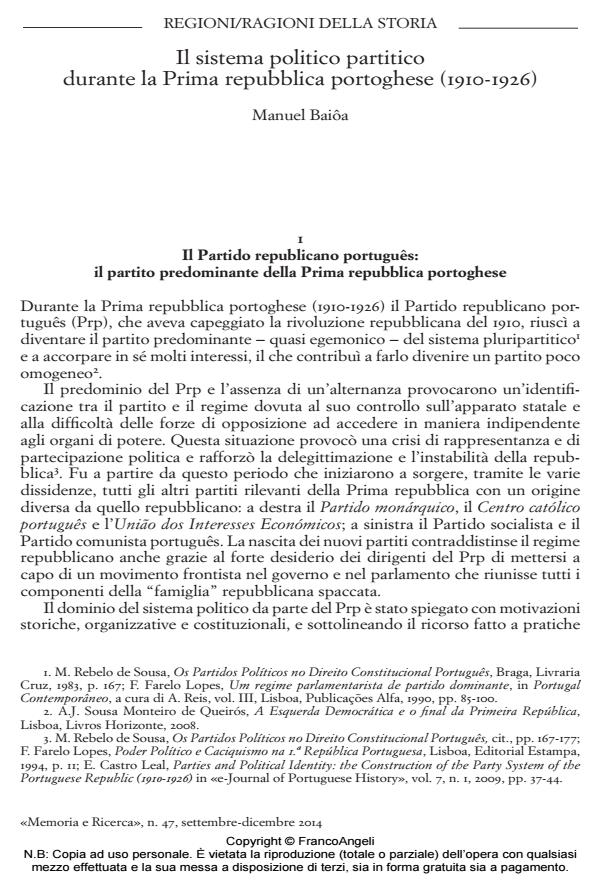The political-party system during the Portuguese First Republic (1910-1926)
Journal title MEMORIA E RICERCA
Author/s Manuel Baioa
Publishing Year 2015 Issue 2014/47
Language Italian Pages 20 P. 115-132 File size 152 KB
DOI 10.3280/MER2014-047008
DOI is like a bar code for intellectual property: to have more infomation
click here
Below, you can see the article first page
If you want to buy this article in PDF format, you can do it, following the instructions to buy download credits

FrancoAngeli is member of Publishers International Linking Association, Inc (PILA), a not-for-profit association which run the CrossRef service enabling links to and from online scholarly content.
The Portuguese Republican Party became the dominant party in the political system of the Portuguese First Republic (1910-1926) due to historical, organizational, clientelist, violent and constitutional causes. The opposition felt it could hardly manage alternation via elections therefore resorted to violent and unconstitutional practices to reach the government. The Portuguese political parties modernized themselves in this period, but didn’t turn into mass parties. In major cities they acted as cadre party and in the rural area as a party of notables. During the First Republic they did not take consistent steps to democratize the political system. Portugal remained tied to the liberal and elitist tradition of the nineteenth century, although in a republican and revolutionary version.
Keywords: Portugal, Portuguese First Republic, Portuguese Republican Party, Party of notables, Cadre party, Mass party
Manuel Baioa, Il sistema politico partitico durante la Prima repubblica portoghese (1910-1926) in "MEMORIA E RICERCA " 47/2014, pp 115-132, DOI: 10.3280/MER2014-047008